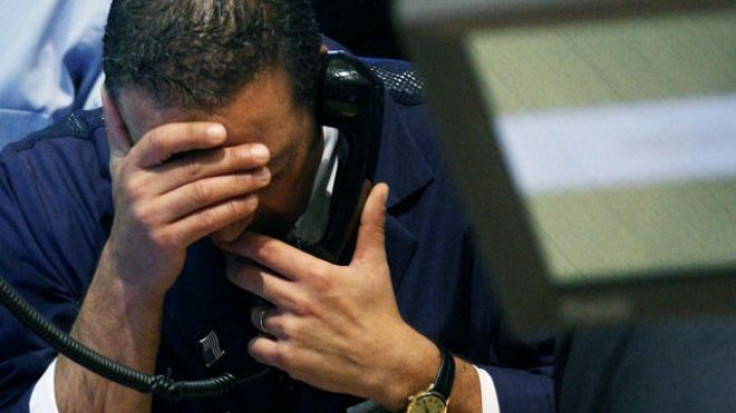US Stock Futures Down Friday As Budget Talks Stall

U.S. stock index futures point to a lower open Friday as sentiment was dampened after the Republican lawmakers abandoned a vote on an alternative plan aimed at averting the fiscal cliff.
The futures on the Dow Jones Industrial Average were down 1.16 percent, the futures on the Standard & Poor's 500 Index were down 1.26 percent and those on the Nasdaq 100 Index were down 1.26 percent.
Investor sentiment turned negative late Thursday after the Republicans called off a vote in Congress as they failed to get enough support for House Speaker John Boehner’s “Plan B,” which would allow tax rates to rise on households earning more than $1 million, raising the concerns that lawmakers might fail to reach a deal to avert the $600 billion spending cuts and tax hikes that threaten to push the world’s largest economy into a recession early next year.
“The delay in votes by Republicans and the subsequent announcement that the U.S. House of Representatives will adjourn until after Christmas reignited fear of a breakdown in the negotiation, reversing early optimism over averting the ‘fiscal cliff’ quickly,” said a note from Credit Agricole.
Meanwhile, investors are likely to focus on economic data, including durable goods orders, and the Personal Consumption Expenditure (PCE) price index, which is the component statistic for consumption in GDP collected by the BEA, measuring personal spending and income, which are due to be released before the markets open.
The Department of Commerce released the November personal income and consumption data at 8:30 a.m. EDT. Economists expected a 0.3 percent increase in personal income in November after no change in the preceding month, while personal spending is likely to rise 0.2 percent after declining 0.2 percent in October. The core PCE deflator is expected to increase 0.1 percent.
Durable goods orders, which measure the change in the total value of new orders for long-lasting manufactured goods, are expected to increase 0.3 percent in November after gaining 0.5 percent in the previous month. The core durable goods orders for October, which will exclude transportation items, are expected to remain flat in November after increasing 1.8 percent in October.
Investors will also keep a close eye on the final December University of Michigan Consumer Sentiment Index which is due to be released after the markets open Friday. The index is expected to settle at 74.7, slightly higher than the initial estimate of 74.5, and down from 82.7 in November.
U.S. stock markets ended higher Thursday as encouraging U.S. economic data buoyed sentiment. Economic data Thursday were broadly positive -- the third quarter GDP was revised to 3.1 percent from 2.7 percent, the Philly Fed index surprisingly jumped to 8 in November from negative 10.7 in the previous month, and existing home sale surged 5.9 percent in November.
European stock markets were trading lower with the DAX30 down 28.34 points, the CAC 40 down by 13.00 points and the FTSE 100 lower by 22.49 points.
Asian stock markets ended lower Friday since investors were worried about the U.S. fiscal cliff. Japan’s Nikkei declined 0.99 percent, India’s BSE Sensex fell 72 percent and South Korea’s KOSPI Composite declined 0.95 percent, while the Chinese Shanghai Composite slipped 0.69 percent.
© Copyright IBTimes 2024. All rights reserved.











